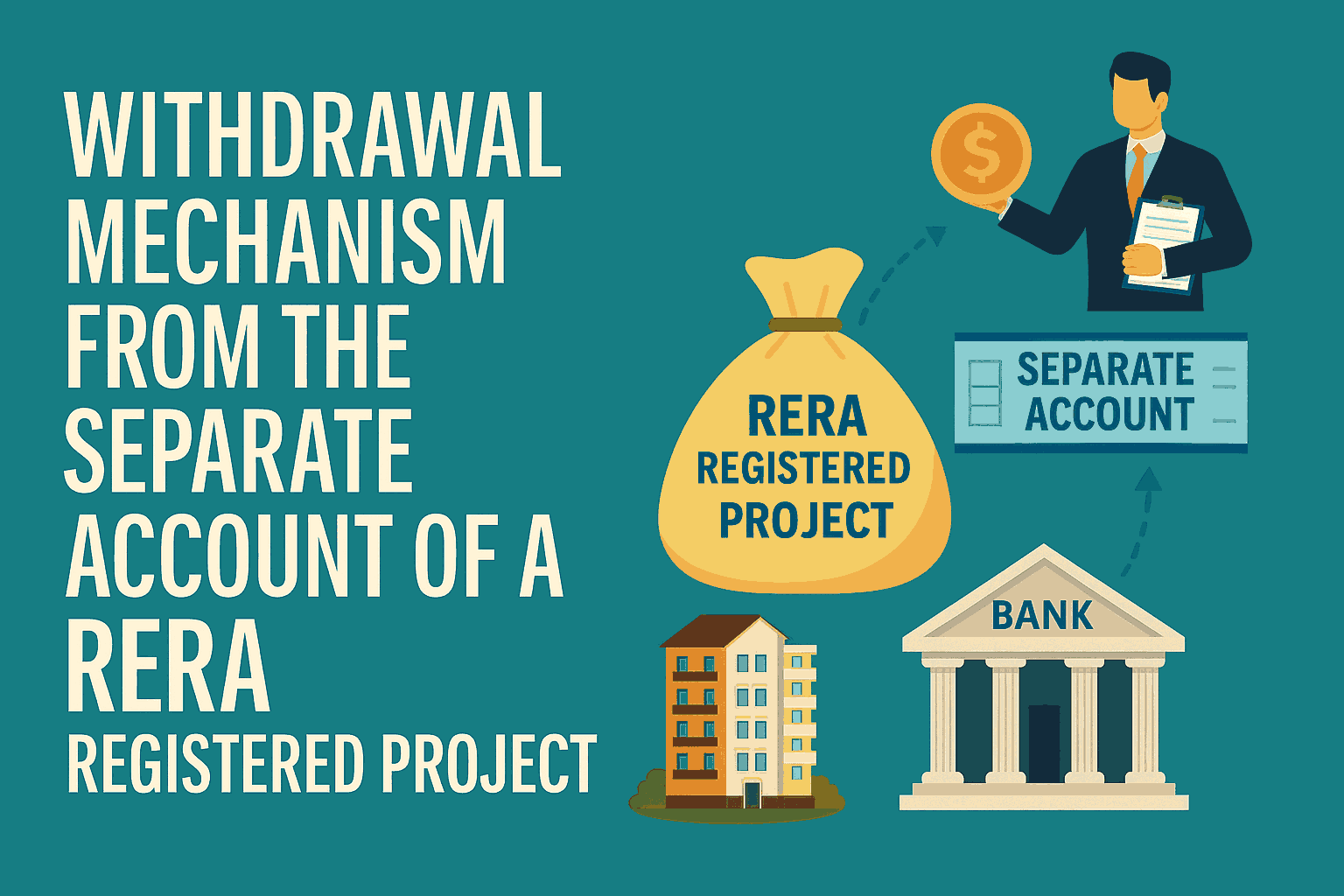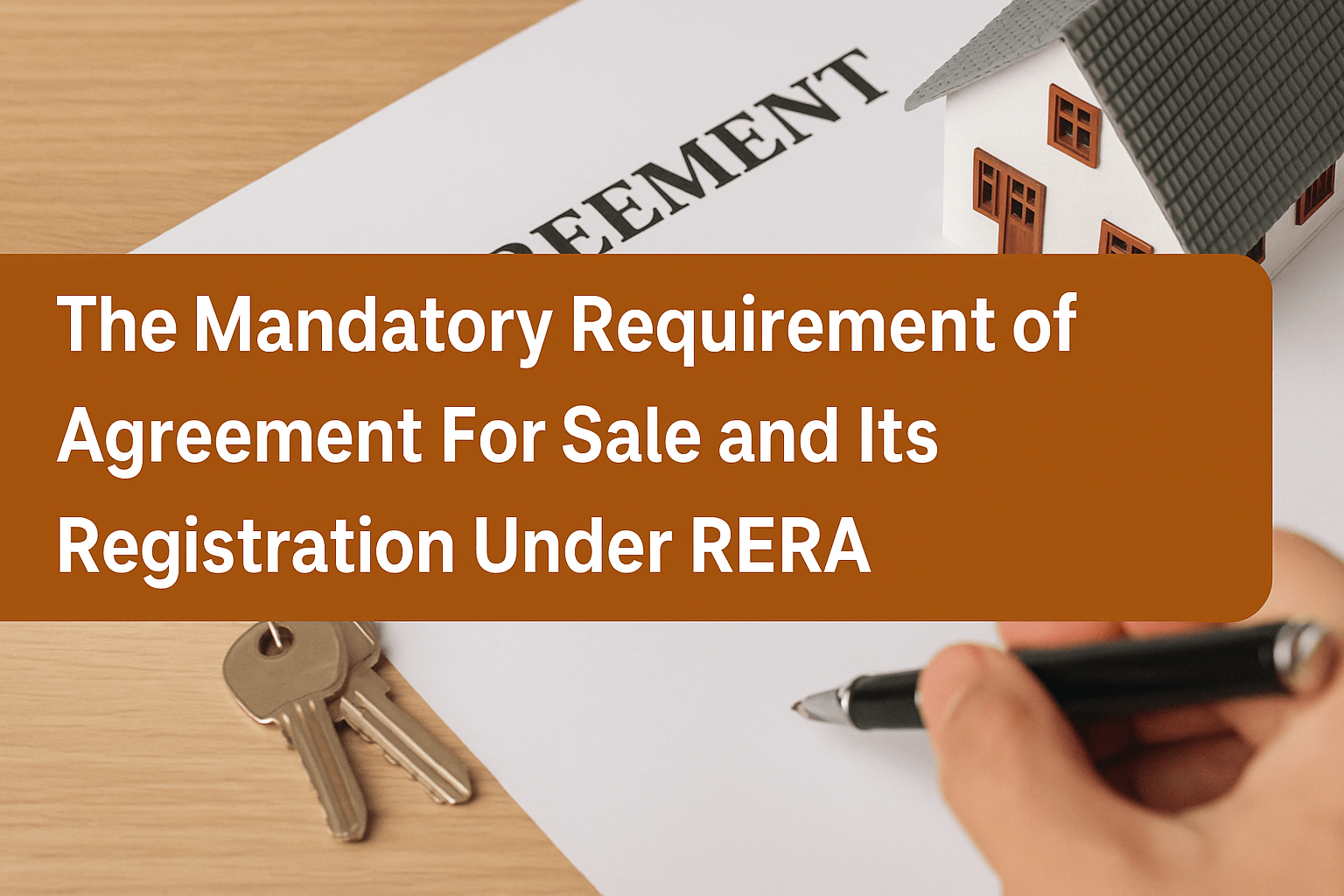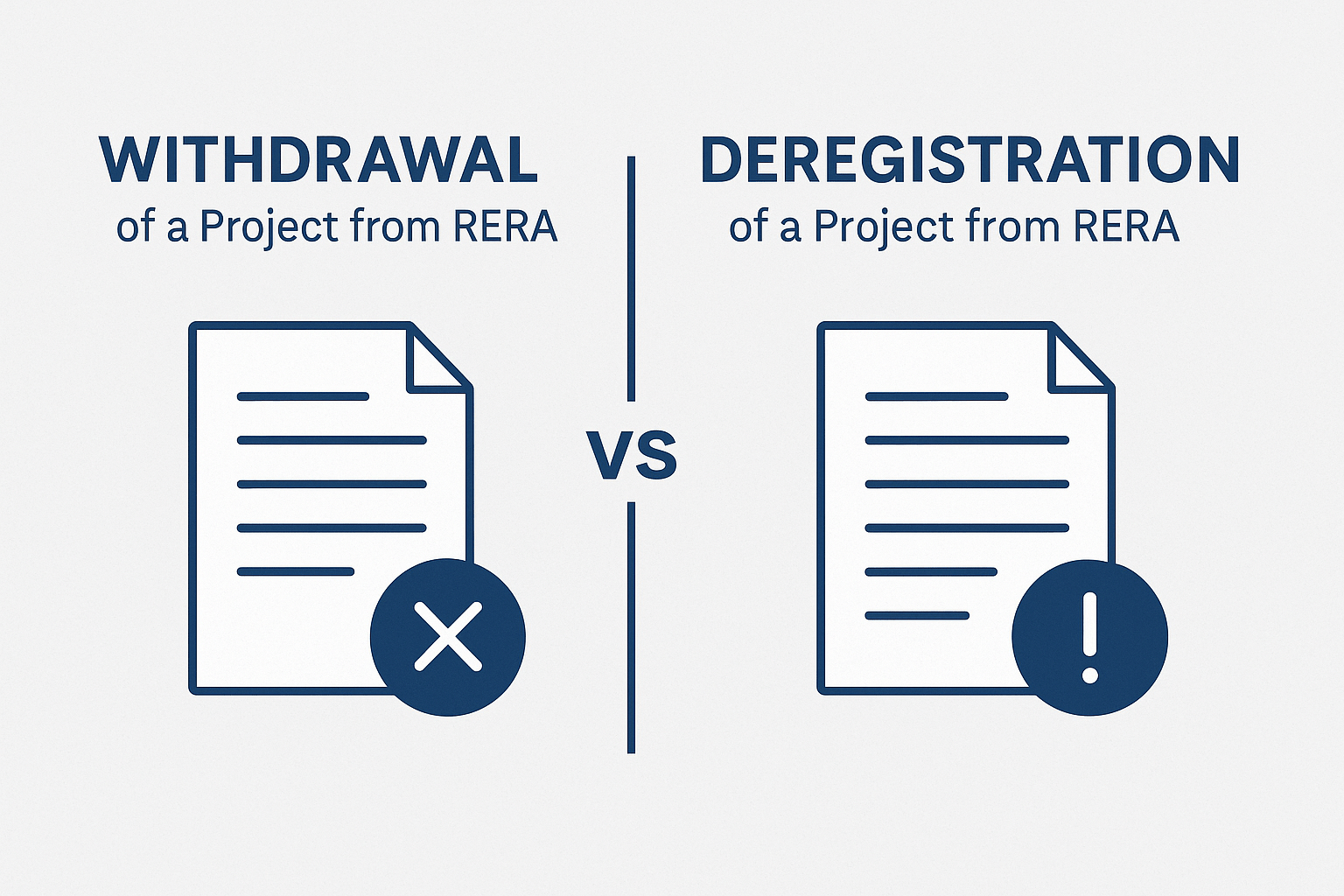
One of the most critical provisions under the Real Estate (Regulation and Development) Act, 2016 (RERA), is the requirement for developers to maintain a Separate Account for every project registered with RERA. This mechanism ensures that the funds collected from homebuyers are used specifically for the construction of the project, adding an extra layer of protection for buyers. This blog explores how the withdrawal mechanism works from this account, its importance, and how it safeguards the interests of all parties involved.
Key Takeaways:
What is the Separate Account?
Under RERA, developers are required to open a Separate Account to deposit all the funds received from homebuyers for a registered project. This account is used exclusively for construction-related expenses, ensuring that the money is utilized appropriately.
How Does the Withdrawal Mechanism Work?
The funds in the Separate Account can only be used for specific purposes—mainly construction and related activities. Developers cannot withdraw these funds freely. Instead, the withdrawal is subject to a strict monitoring process.
Developers are allowed to withdraw funds based on the percentage of work completed in the project, verified through quarterly progress reports (QPR). This means that the funds are released in a staged manner, aligned with the progress of construction.
Verification and Certification Process:
To ensure that funds are used for legitimate construction purposes, every withdrawal from the Separate Account needs to be certified by the project's Architect, Engineer, and Chartered Accountant (CA). This adds a layer of transparency and accountability to the entire process.
The QPR plays a crucial role in the verification process, providing detailed information about the progress of the project, work completed, and the financial position.
Importance of the Withdrawal Mechanism:
· Protection for Homebuyers: This mechanism protects the interests of homebuyers, ensuring that their money is spent on the construction of the project and not diverted elsewhere.
· Transparency in Project Execution: The regulated withdrawal process promotes transparency in how the funds are used, giving homebuyers and investors’ confidence in the project’s progress and financial integrity.
· Compliance and Accountability: Developers must comply with RERA guidelines, and the withdrawal process helps ensure that funds are being utilized as per the project plan.
What Happens in Case of Non-Compliance?
If a developer is found misusing the funds or not following the correct procedure for withdrawals, RERA can impose penalties, suspend project work, or take legal action. In extreme cases, the project may even face cancellation. And Homebuyers can file complaints with RERA if they suspect mismanagement or misuse of funds.
Role of the Project Auditor and RERA Authorities:
The role of the auditor is crucial in ensuring that the funds in the Separate Account are being used for their intended purpose. Regular audits and inspections by RERA authorities ensure compliance and protect the interests of all stakeholders involved.
Conclusion:
The withdrawal mechanism from the Separate Account is a vital safeguard that ensures funds are being used responsibly and in alignment with the construction progress of a RERA-registered project. For developers, compliance with this mechanism is a legal obligation. For homebuyers, it offers peace of mind knowing that their investments are being protected.
Author
CA Akash Jaiswal
Chief Advisor, Apex RERA Professionals
Contact



Apex RERA Professionals is owned by Realtyedge Professionals LLP.